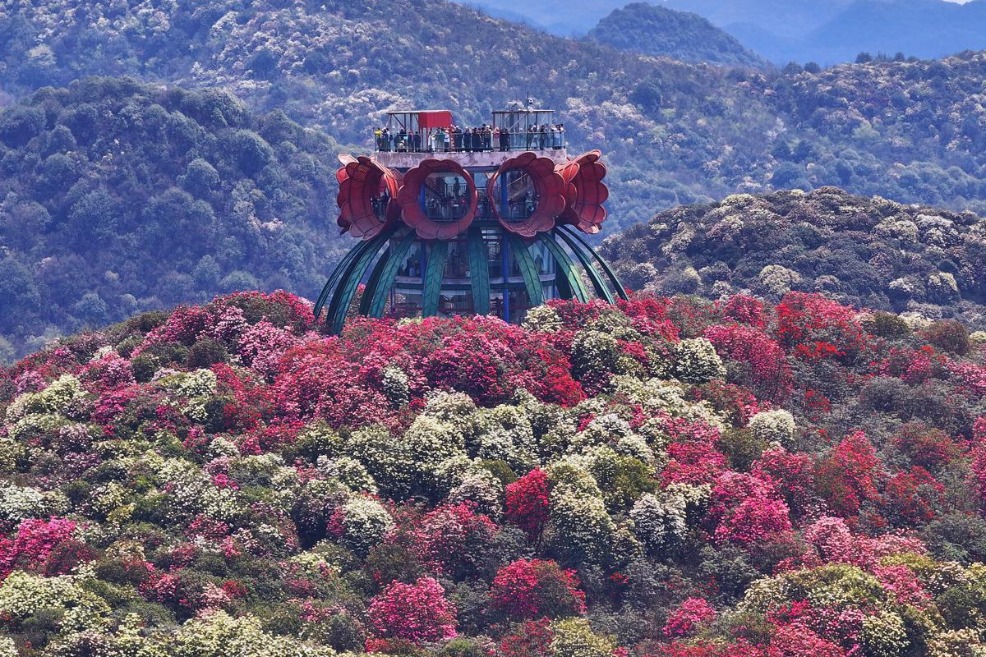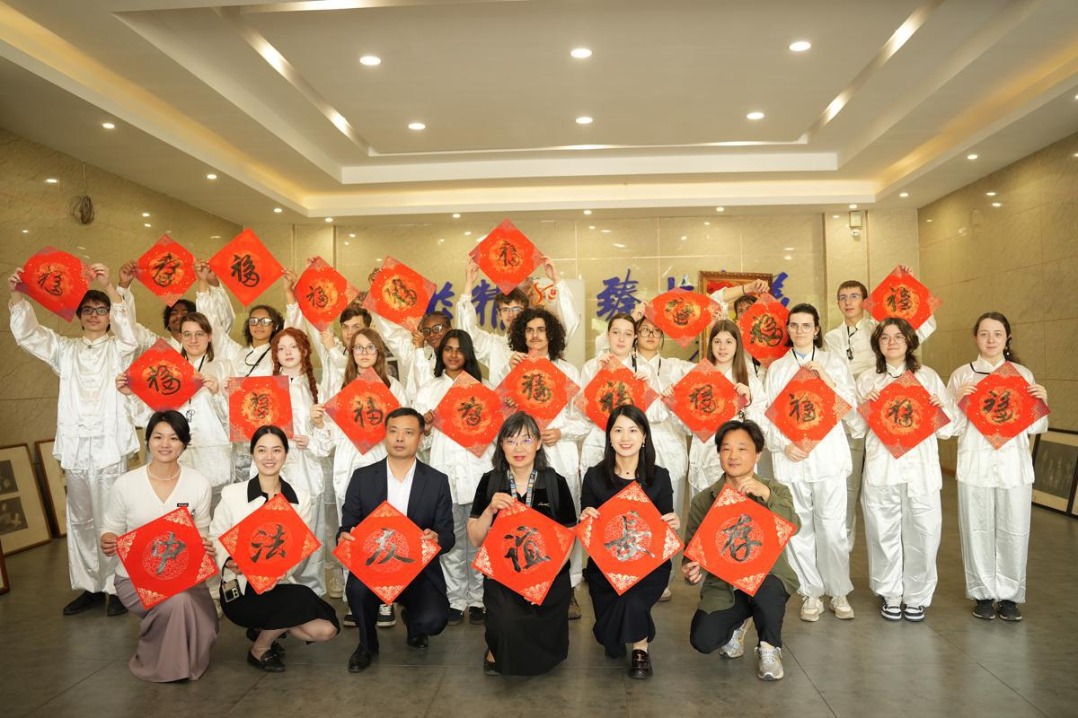Bridging cultural differences to develop friendship

Gustavo Tavares sports silver studs in his right ear, and a yellow phone charger peeks out of his black pants. He looks stylish, perhaps owing to his year working in Rio's fashion industry just out of college.
Now, he's a mid-level staffer at State Grid Brazil Holding in Rio, working at the intersection of Brazilian and Chinese business cultures.
Tavares, 31, was born and raised in Paracambi, a town about 70 kilometers from the center of Rio de Janeiro. After working in fashion for a year, he returned to his hometown in 2017.
At that time, State Grid was constructing the world's largest ultrahigh-voltage transmission line in Paracambi, a 2,500-kilometer project geared to transporting electricity from a massive hydroelectric plant in the north of Brazil to the more populated and industrialized regions in the south.
Fernando Coelho Filho, who was then minister of mines and energy, praised the confidence shown by the Chinese in taking charge of the project, which had a budget of R$9.6 billion ($1.7 billion), even amid the worst recession in the country's history.
Tavares found a job in the field working as a translator for the Chinese team and local teams. In addition to Portuguese, he speaks English, a language more commonly spoken by the Chinese.
At the end of a narrow dirt road in Paracambi, yellow tractors were lined up in an open field before the clearing for the project began.
"It was just sand. It was just ground," said Tavares. "They were cutting through the mountains and leveling everything," he said. That was the earthwork stage, preparing the foundations before the actual construction started. The place has changed a lot since, he said.
"When I started working with the Chinese team, I learned a lot. It was where I improved my English and picked up skills I never expected, like discussing construction and earthworks, and planning construction projects. It was a great experience. By the time I joined the communications team in 2020, it felt like a dream come true," Tavares said.
Now back in Rio working in the communication and marketing department of SGBH, Tavares said he enjoys working with his team. "I've learned a lot, and I've grown professionally. I made many friends there, and I love my team — they're truly like friends to me," he said.
SGBH has 892 employees in Rio, about 60 of them are Chinese and more than 93 percent of them are local employees. Tavares is one of the company's 832 Brazilian employees.
"Chinese culture and Brazilian culture are very different," said Tavares, who has worked for the Chinese company for more than six years. When his Chinese colleagues arrive in Brazil, they often are a bit shy, he said. Tavares is usually the first to step forward and make friends with them.
"I think it's about how we treat each other. Brazilians are very warm. When the Chinese first arrived, they needed to feel this warmth, too. They needed to understand this aspect as well. The way Brazilians do things, and the way the Chinese approach things — it takes a little time for both sides to meet in the middle. However, six years later, I've gotten used to it," Tavares said with a laugh.
UNESCO named Rio as "World Capital of Architecture" for 2020.In the Centro area of the city, many of the concrete structures have sustained damage from the humid tropical climate, giving the neighborhood a worn-out appearance. Yet, the 16-story office building of the Chinese company State Grid stands out with its new, glass facade.
Over the past six years, Tavares has worked with many Chinese colleagues and made close friendships. He even invites his current Chinese manager to his birthday party every year.
"We're almost the same age, so we think alike. We're very close in how we see things because of our similar age. We met each other, and we like each other a lot," he said.
On Nov 16, at Rio's Botanical Garden, one could look up and see the statue of Christ the Redeemer, one of the Seven Wonders of the World. Below the icon, Tavares and his team were busy organizing the China-Brazil Friendship Garden opening event.
The Chinese Ambassador to Brazil Zhu Qingqiao, and the Brazilian Minister of Culture Margareth Menezes attended. Tavares and his team had been preparing for the moment for several months.
"I also learned from my Chinese colleagues about responsibility. They're very responsible about everything. They are very respectful of their country, their history, and everything related. I've learned from them to be more passionate about our country's history," Tavares said.
- Rice gene map to enable breeding of improved varieties
- China dispatches health team to quake-hit Myanmar
- China boosts vaccination accessibility at grassroots
- John Lee: HKSAR govt to press ahead with 15th National Games preparation
- 300-year-old dying tree in China gets second chance at life
- Population of critically endangered diving duck surges in China




































